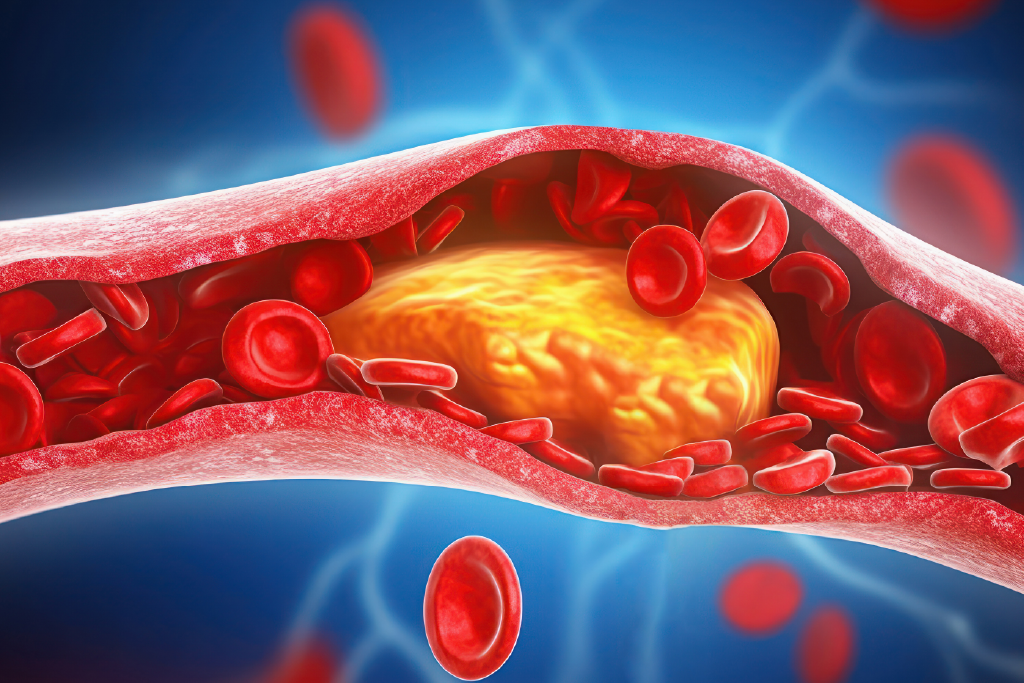Why Veganism Is the Key to Better Heart Health

Heart ailments are the leading co-mortalities worldwide, but much of it is preventable. A powerful antidote to heart ailments and healthy living is veganism. A plant-based diet containing all crunches of fruits, vegetables, nuts, and whole grains supplies nutrients and those protective qualities for the heart that one may never have expected.
Now, let's examine why veganism works as the heart's best friend and how exactly it promotes cardiovascular health.

Plant foods actually reduce cholesterol levels, did you know? Cholesterol is a big player in the cause of heart disease, especially LDL or low-density lipoprotein, which is termed as bad cholesterol. The more animal foods such as meat, dairy, or processed snacks one consumes, the higher will be the LDL levels.
Now, when you turn to the vegan diet, you eliminate the saturated fats present in animal products. In their place, you consume beneficial fats such as those found in avocados, nuts, and seeds-lowering LDL cholesterol levels. From time to time, studies have showcased the fact that cholesterol levels are lower in vegans which can reduce riskof heart attacks and strokes. Think of it as nature’s way of helping you clear the pathway to a healthy heart!

High blood pressure is often called a "silent killer" because it does not display obvious symptoms and thus greatly increases the risk of heart attacks, strokes, and kidney disease. The better way of handling hypertension is, hence, a plant-based diet.
The vegan diet contains plenty of potassium-rich foods such as leafy greens, bananas, and sweet potatoes that can balance sodium levels in the body and regulate blood pressure. Additionally, vegans tend to stay away from processed foods which contain high salt content and artificial additives. Several studies have proven that vegans have lower blood pressure readings than others. So getting on the bandwagon may be the best thing one can do for the heart.

Inflammation plays a significant role in the development of heart disease by damaging blood vessels and increasing plaque buildup in the arteries. Animal-based products, such as meat and dairy, can trigger chronic inflammation.
However, plant-based foods are natural anti-inflammatory superheroes. Berries, leafy greens, garlic, turmeric, and other plant-based foods are rich in antioxidants and phytochemicals that reduce inflammation. Not only will your heart thank you, but you’ll also feel the benefits in your overall health.
4. Your Weight and Your Heart: A Love Story
Inflammation is paramount to the development of heart disease and does so by the destruction of vessels and by turning on the process of plaque accumulation in the arteries. Animal foods, including meat and dairy, are one set of triggers for chronic inflammation.
Plant foods serve as natural anti-inflammatory agents. This includes berries, leafy greens, garlic, turmeric, and many other plant-derived foods that are rich in antioxidants and phytochemicals that help combat inflammation. Your heart will thank you for it; equally well, you will feel the impacts in your gross health.
5. Regulate Your Blood Sugar for a Healthier Heart
This will probably come as a shock to you that the control of blood sugar is an important factor in maintaining heart health. Variations in blood sugar levels cause resistance to insulin, which is one path by which heart disease may make an entry.
This is where the golden moment of a vegan diet appears. These diets are usually high in fiber content, which slows sugar absorption into the bloodstream, thus regulating blood sugar levels. Whole, unprocessed plant-based foods will work wonders in maintaining good cholesterol levels, placing them in the best combination for cardiac health.
6. Fiber: The Heart-Healthy Hero
When you mention fiber as a nutrient, many will discount it. But it is a game-changer for heart health. High-fiber foods tend to reduce cholesterol, stabilize blood sugar levels, and regulate blood pressure. And they happen to be largely plant foods.
Heart-friendly vegan diets center around beans and lentils, whole grains, fruits, and vegetables that have foods rich in fiber. On the other hand, fiber may promote digestion and clearing cholesterol, which is beneficial for your body as well.
7. The Vegan Diet and Heart Disease Prevention: Real Results
Over the years, research has shown that vegan diets aren’t just beneficial for general health—they can actually prevent and, in some cases, even reverse heart disease. The classic story of Dr. Dean Ornish’s groundbreaking studies showed that people with heart disease who adopted a whole-food, plant-based diet saw their heart health dramatically improve.
It’s not just theory—it's science! By cutting out animal products and focusing on nutrient-dense, plant-based foods, you can reverse some of the damage caused by years of unhealthy eating and prevent future heart problems.
8. Sustainable for Your Heart and the Planet
Research over the years has demonstrated that vegan diets are not only good for overall health but can also prevent and even reverse heart disease. People with heart disease who switched to a whole-food, plant-based diet experienced a significant improvement in their heart health, according to the well-known tale of Dr. Dean Ornish's pioneering research.
It's science, not just theory! You can repair some of the harm from years of unhealthy eating and avoid further heart issues by avoiding animal products and concentrating on nutrient-dense, plant-based foods.
9. Veganism: The Heart-Healthy Lifestyle You Can Stick With
Being vegan is about abundance rather than deprivation. You can enjoy a wide range of delectable, nourishing, and heart-healthy foods when you follow a vegan diet. The options are endless, ranging from delicious grain bowls to savory vegetable stir-fries. What's the best part? Heart-healthy nutrients are abundant in every meal, nourishing your body and safeguarding your cardiovascular system.
In conclusion, a heart-wise decision
Veganism is a heart-healthy way of life, not just a fad. You can maintain a healthy weight, lower your cholesterol, reduce inflammation, and control your blood pressure and blood sugar levels by avoiding animal products and concentrating on whole, plant-based foods. These changes all help to improve heart health.




